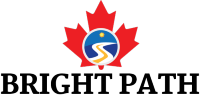Now Study in Canada, and explore a world of opportunities. Some of the finest universities here offer the latest information and innovative techniques used in learning. It would be right to say that Canada is the New World with opportunities galore.
Here are some information that can help you make a decision:
What are my options as a graduate student in Canada?
The Canadian higher education system consists of two levels – the university which awards major degrees i.e., Bachelor’s, Master’s and Doctorates, and the college which typically offers vocational and diploma programmes.
The main option available for a graduate student i.e., post the award of a Bachelor’s degree, is a Master’s degree. A Master’s degree is awarded by a university, following a programme typically of 1-2 years’ duration, involving taught coursework, research leading to a thesis, or a combination of the two. Graduate certificate and diploma programmes are offered by colleges – these would involve a certain number of credit courses, and are a supplement to an undergraduate degree, oriented towards development and upskilling for career advancement. In certain cases, a Graduate diploma may be a requirement to advance to a Master’s programme. To qualify for a PhD, a Master’s degree is the typical requirement.
What are the eligibility criteria for admission into a Canadian university?
The minimum requirement for entry into a Canadian university graduate programme is a Bachelor’s Degree equivalent to a 4-year Canadian Bachelor’s, awarded by a recognised tertiary education provider. Most universities/programmes stipulate a minimum required GPA, which usually begins at 3.0 on a 4.0-point scale. Indian 3-year Bachelor’s Degrees, e.g., BA, B.Com. or B.Sc., are usually not considered equivalent – a postgraduate diploma/Master’s degree is often required in addition to a Bachelor’s, to qualify for several Canadian Master’s programmes. However, graduate diploma programmes as well as some Master’s programmes may consider the Indian 3-year Bachelor’s on a case-by-case basis.
What are the language requirements for admission into a Canadian university?
Programmes in Canada are taught in English. Non-native English speakers will be required to provide proof of sufficient proficiency in the language, in order to be considered for admission.
The preferred international language test accepted by Canadian universities is IELTS. Each university/programme sets its own minimum required score, which usually does not dip below 6.5 overall with no individual band score below 6.0.
IELTS is also recommended by the Student Direct Stream i.e. the accelerated visa process facility available for students from certain countries, including India. However, other international language tests may also be considered, including TOEFL and PTE Academic.
When can I start my course in Canada?
Universities in Canada typically offer 2 major intakes in a year – Fall and Winter, and an additional summer intake for limited programmes and universities. While in India, students can only enter university in the first semester, in Canada, students have the ability to commence their studies in whichever intake suits them, subject to various factors including course availability.
Intakes
Fall: commences in September
Winter: commences in January Summer (limited programmes/universities only): commences in April-May
What are the Visa requirements to study in Canada?
International students who are enrolled in a programme longer than 6 months are required to apply for a Study Permit. Eligibility for the permit includes confirmed enrolment in a designated institute, proof of sufficient funds, and proof of character and good health, including police/medical certificates if necessary.
Students from certain countries, including India, are eligible for the Student Direct Stream, i.e., accelerated processing of the Student Permit.
The student permit alone does not permit you to enter the country, but is issued alongside a Visitor’s Visa. The student permit permits the holder to remain in Canada until the stipulated end date of the programme or 90 days post early completion of the programme, whichever is earlier.
How much will it cost to study in Canada?
Canada is known for having a generally lower rate of tuition fee than other top-ranked overseas education destinations. The tuition fee for a Master’s programme ranges from 16000-30000 CAD per annum, with most averaging at 21-22000 CAD. Variations are as per the subject area, with Arts and Humanities on the lower side and Medicine and Engineering on the higher, or as per the university (private institutions often have higher fees). MBA programmes usually have the highest tuition fees, even going up to 40000 CAD.
The cost of living in Canada varies as per the city or province. Toronto and Ontario are typically ranked as having the highest cost of living. The cost of living typically ranges from 14-16000 CAD per annum. International students will also have to cover the compulsory health insurance costs, which average at 850-900 CAD per annum, varying as per the province.
A fee of approximately 250 CAD will also be incurred to process a Canadian Visitor’s visa and a Study Permit – the two essential documents required to study in Canada.
Are there scholarships available to help fund my studies in Canada?
There are a number of scholarships available for international students studying in Canada, offered by the Home or Destination State, by independent funding agencies, or by the concerned universities.
Can I work while I study in Canada?
The Canadian Student Permit must carry the stipulation that permits you to work on-campus i.e., in one of the buildings/for an employer associated with the university. In order to work, you must satisfy certain criteria, and you are permitted to work only during the tenure of your studies, not before or after.
If you are required to work co-op or as an intern as per the demands of your programme, you will have to apply for an additional work permit.
Can I stay back and work in Canada after I graduate?
Graduates of certain institutions/programmes are eligible for the Post-Graduation Work Permit (PGWP) which permits foreign nationals to remain in the country for work, following graduation.
Alternatively, other work permits are also available to remain in the country for work – these are the Open Work permit that allows you to work for any employer in Canada, or the Employer-Specific Work permit that allows you to work for a specific Canadian employer. Each work permit is subject to certain conditions for eligibility. Education and work experience in Canada may qualify a foreign national to eventually apply for Permanent Residency (PR) status in Canada.




